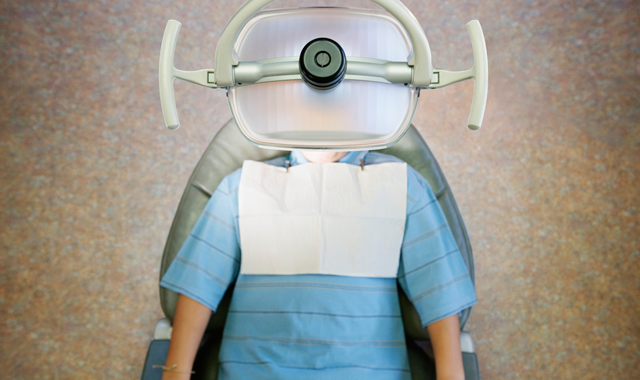Is professional subgingival oral irrigation necessary?
Using evidence-based research to explore whether this procedure is beneficial to patients.

The subgingival application of different chemotherapeutic agents as an adjunct to nonsurgical periodontal treatment and preventive periodontal therapy comes and goes, but it’s not considered a “gold standard” procedure like scaling and root planing. Knowledge of its effectiveness and cost considerations aren’t widely discussed.
Jenny Argot, RDH, considered joining a branch office of a corporate dental practice that employed a larger roster of practitioners. In discussions about clinical operations, Jenny discovered that she’s expected to irrigate subgingivally with 0.12% chlorhexidine following scaling and root planing (SRP). The practice charges for the procedure and Jenny was recently employed by a periodontist who didn’t include subgingival irrigation as part of his SRP protocol. Jenny called the periodontist to ask about subgingival irrigation (SI) as an adjunct to SRP and he directed her to the American Academy of Periodontology website to find her answer.
Trending article: Top 10 worst states for dental hygienists
Jenny found a position paper on the role of supra- and subgingival irrigation in the treatment of periodontal disease (J Periodontol, 2005; 76: 2015-2027)1 that concludes there’s insufficient evidence to support the use of subgingival irrigation as a supplemental procedure to augment the effects of scaling and root planing (SRP). A variety of medicaments were used, but chlorhexidine (CHX) is the drug most studied. Irrigants are typically washed out of pockets fairly quickly and lack substantivity.
In evaluating the evidence to support an adjunctive procedure like subgingival irrigation, I always look for good quality research, and I do it according to a hierarchy of evidence from strong to weak according to quality, validity and applicability to patient care. (See this table for reference.)
Jenny sought the opinion of a periodontist and a position paper from the American Academy of Periodontology (Level VII evidence), but she also needed to look for higher levels of evidence.

In searching the literature, she found a 2015 systematic review (Level I evidence) that searched dental journals through the end of 2014, looking for randomized controlled trials (RCTs), which are a higher level of evidence. Only two RCTs were found that evaluated the efficacy of subgingival irrigation (SI) as an adjunct to SRP in patients with chronic periodontitis. Studies were only of mediocre quality with risk of bias and poor methodology. The authors concluded that there’s insufficient evidence supporting the efficacy of SI as an adjunct to SRP in treating chronic periodontitis.2
It became clear to Jenny that the current evidence to support subgingival irrigation as an adjunct to SRP remains controversial, even though numerous studies addressed the impact of subgingival irrigation on clinical and microbiologic parameters.2 The authors hinted that the addition of SI while performing SRP may provide additional clinical benefits compared to SRP alone, but the small number of poorly-designed studies prevents the authors from making definitive statements supporting SI based on available evidence.2
More from the author: Making a case for powered toothbrushes
Professional subgingival oral irrigation may or may not be passé, and it’s not because it just fell out of favor or is an out-of-pocket expense for the patient. More importantly, many dental professionals now recognize that professional subgingival oral irrigation is not yet supported by reliable data, and we can’t make a trustworthy decision about its benefit to the patient as an adjunctive procedure.
Jenny had a difficult decision to make: Should she take a job where she may be required to provide a service that falls outside of what she knows to be morally right or proper? What would you do in her position?
References:
1. G. Greenstein, Research, Science and Therapy Committee of the American Academy of Periodontology. “Position Paper: The role of supra- and subgingival irrigation in the treatment of periodontal diseases.” 2005 Nov.; 76(11).
2. Sreenivas Nagarakanti et al. “Effectiveness of Subgingival Irrigation as an Adjunct to Scaling and Root Planing in the Treatment of Chronic Periodontitis: A Systematic Review.” J Clin Diagn Res. 2015 July; 9(7): Published online 2015 July 1.
Floss & Flip-Flops Episode 11: Diabetes Health Month
November 15th 2022Diabetes is a global disparity and most notably impacts those who are diagnosed as well as those with pre-diabetes or undiagnosed diabetes. Let’s discuss how to become better patient advocates in the screening, management and maintenance of diabetic cases.
University of Texas Health Science Center San Antonio to Launch Center for Regenerative Sciences
June 17th 2024The center aims to translate preclinical discoveries into therapies for dental and craniofacial diseases, leveraging the school’s expertise in stem cell-based treatments and 3D printing technologies.